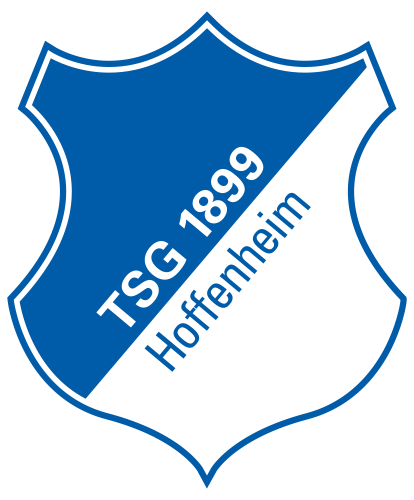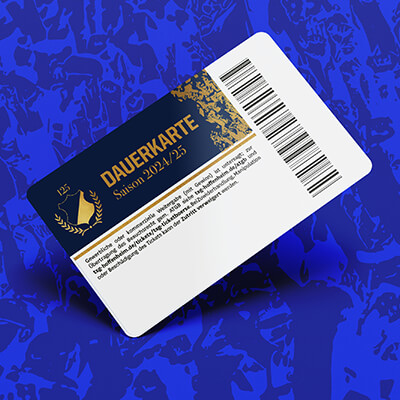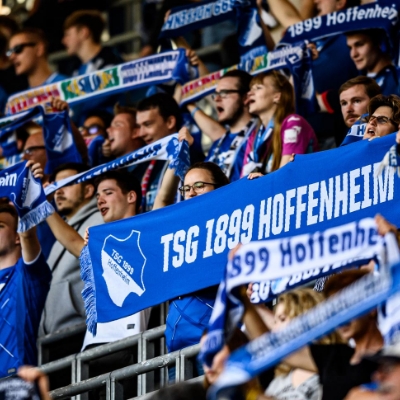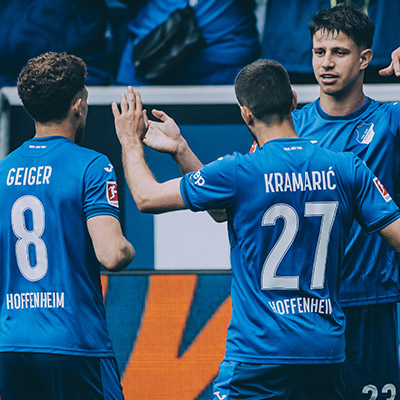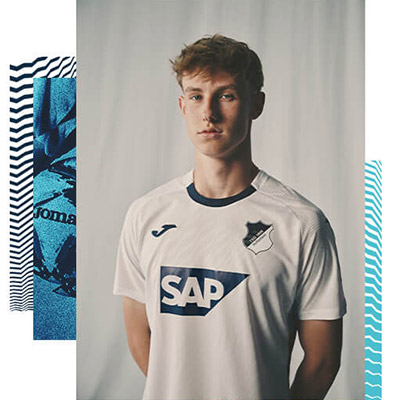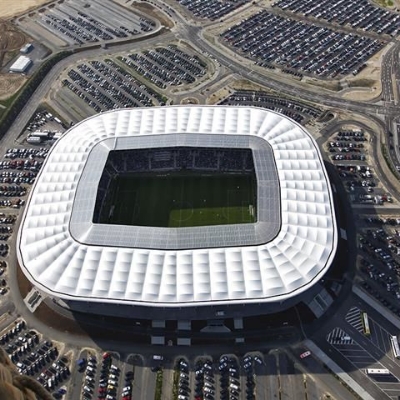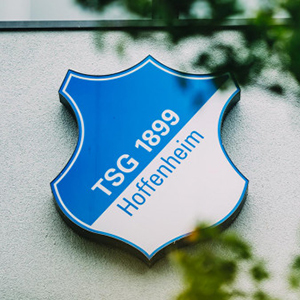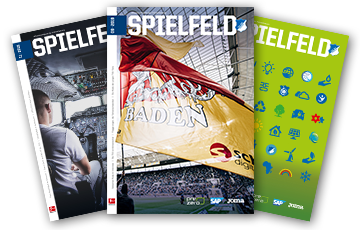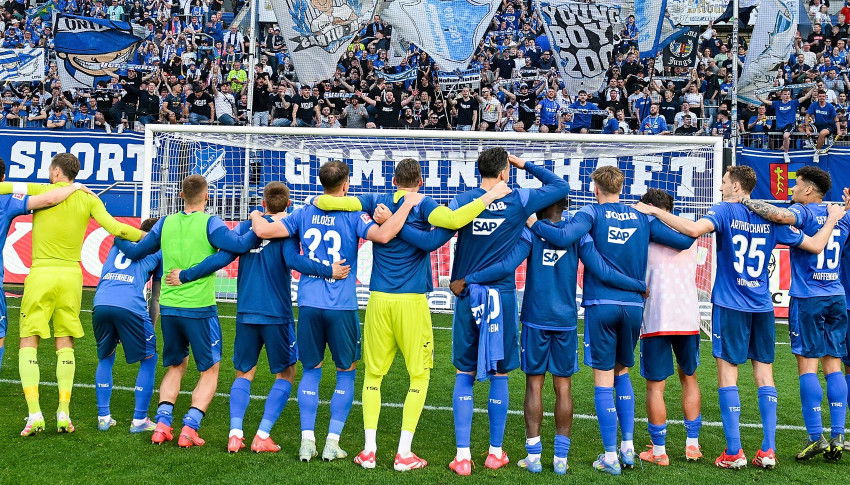A love for detail
When Fabian Sander talks about his job, he is often met with cheeky questions – as he explains in self-deprecating fashion: "Is that a full-time job?" or "So you're a football nerd?" But anyone who is vaguely familiar with match and video analysis will know that working as an analyst for a Bundesliga club is an intense profession. As well as trained eyes, you need an extremely high degree of expertise, tactical nous and a huge amount of passion in order to pick up on and analyse even the smallest details. And details are important pieces of the puzzle that make the difference in the now data-driven world of professional football. "I understand if at first glance it seems like we sit in front of our laptops all day and get paid to watch football. I.e. what others do in their free time, the only difference being that we're a bit more obsessed," said Sander, adding: "There's a lot more to it than that."
For analysts, a modified version of the Herberger maxim applies: the next match is always the most important. The following questions are key in this line of work: What will the match plan look like? How does the opposition play? What do we need to change? What conclusions can we draw from the last match? But the special appeal – as is the case for the players – is the 90 minutes on the day of the match. Sander is tense and "in the zone" for the entire duration of the match. Do we need to change something? Have we put together the right plan? The analysts, who sit high up in the stands, make use of their special view of the game and stay in communication with an assistant coach via radio, are consistently providing live updates to the bench based on their birds-eye view observations. During the half-time interval, Fabian Sander goes into the changing rooms, speaks to head coach André Breitenreiter and subsequently shows the team three or four scenes from the first half. "Our work has a direct impact on the games. That's a super feeling," Sander said.
On days without a game, the job of an analyst involves a lot of hours sitting at the computer and intensively watching videos. "The term nerd is not entirely wide of the mark. But it's not just a case of sitting in front of the PC and watching football. There's more involved than that." The diverse responsibilities are shared among four experts within the TSG analysis team. Matthias Güldner is in charge of opposition analysis and Niklas Hagenhoff takes care of data evaluation, while Timo Gross and Fabian Sander are jointly responsible for set-pieces, training sessions and individual player analysis. "You can probably summarise it as follows: our job is to make sure that neither the coaching staff nor the players are caught by surprise during the 90 minutes and are prepared as perfectly as possible," Sander explained.
When it comes to preparing for the next game, nothing is left to chance. Sander admits that the excitement levels rise once the match has kicked off: "The best feeling is when our match plan comes off and things at the stadium are executed the way we've envisaged them. That warms my heart and consistently reminds me that this is what I want to do."
Despite being only 37 years old, he has already amassed plenty of industry experience. Sander grew up in Cottbus and was virtually guaranteed to come into contact with football. His father Petrik was the assistant coach at Energie Cottbus at the time Fabian went to secondary school. Sander junior played club football himself and even made the leap to the Energie Cottbus youth academy, progressing through the ranks with the Lusatians up to A-Junior Bundesliga level. "I then realised that the others were simply better and I probably wouldn't make it as a pro. There were also a few injuries, so I looked for a job in which I could stay loyal to football," Sander said.
Back in his playing days, the former midfielder noticed that he followed the matches differently to his friends. "How does the ball get most effectively from point A to B? Why does this system work particularly well?" said Sander, reflecting on the questions that he would ask himself back then. He got into analysis, increasingly took notes and repeatedly gave his father, who was by now the head coach at Energie Cottbus, tips before matches. This hobby transformed into a valuable expertise that Petrik Sander no longer wanted to do without, and so Fabian Sander was employed as a scout and video analyst in Cottbus.
Father and son enjoyed enormous success together, gaining promotion to the Bundesliga and managing to ensure their survival as underdogs in the first season. Fabian Sander had found his dream job: "Watching football is just great fun for me. I quickly realised that I have an analytical view of it. I became interested in things during games that my friends didn't care about at all. That allowed me to turn my hobby into a profession."
The sports sciences graduate continued his education and subsequently worked for different football clubs in various capacities – including a stint in the marketing department at Wormatia Worms. "That was unbelievably good fun for me and I'm also very interested in that. But during my time at FC Zürich, it became a little bit too much to work in both match analysis and marketing. I therefore decided to place my full focus on analysis."
The development he has undergone since last summer vindicated that decision. In July, he joined the analysis team at TSG Hoffenheim and returned to the Bundesliga in a position of responsibility. The regard in which the Quedlinburg native is held in the industry is demonstrated by the fact that André Breitenreiter absolutely wanted him at TSG after a year of working together. "That meant a lot to me. We also get on well off the training pitch and sometimes do things together privately," Sander said.
The analyst did not have to think for long about TSG's offer. Even though he had just become a Swiss champion with FC Zürich and his wife had a permanent job in the country's financial capital, he decided to make the move. The pull of working in the Bundesliga again was too great. On his days off, Sander always travels to Switzerland to see his wife, but still feels very much at home at TSG. "I've been given a super welcome here. We get on like a house on fire in our analysis team. I couldn't imagine a better job. Plus, Switzerland is not all that far away, so my wife and I see each other relatively often."
But even on days when he is supposed to be off such as Champions League matchdays, or throughout the World Cup, the hobby that became his profession takes over. "We of course don't want to miss any trends. It helps to watch the best teams in the world. But on the sofa, I don't have the technical conditions to analyse a match perfectly. I also try to switch off and enjoy football. I love the sport too much for that."



